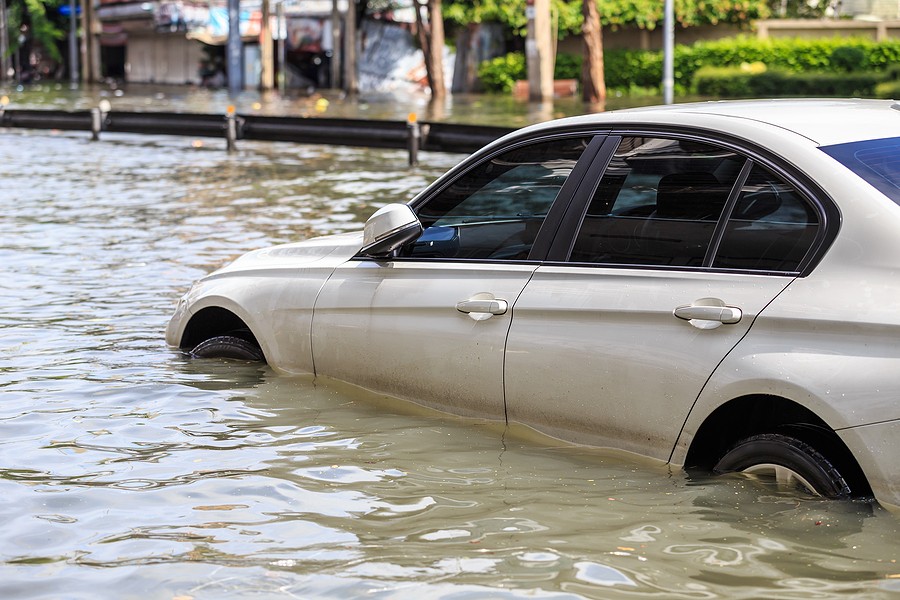Whether flood-damaged cars are repairable depends heavily on the severity of the flood. If the flood was minor and the vehicle was dried quickly, the vehicle might be repairable. Otherwise, the vehicle might become salvage.
Dealing with a flood-damaged car is never a fun situation. All you experience is these weird odors and excessive rust on the exterior, along with the weird, strange noises coming out of the engine.
Sometimes it can be very hard to sell a flood-damaged car, that's why many wonders, are flood-damaged cars repairable? Figuring out the answer to this question requires a little research and understanding the main factors that help you confirm whether you should go forward with repairs or sell the vehicle.
It's also critical for people to avoid purchasing flood-damaged vehicles considering the negative consequences that they must deal with.
This article provides you with all the details you need to know to help you answer the question of are flood-damaged cars repairable. It also highlights the main symptoms you could look for to confirm whether one was flood-damaged before or not.
Are flood-damaged cars repairable? What factors determine?
Sometimes it can be challenging to determine whether your vehicle is repairable or not after it got into a flood. The good news is that automotive experts were able to put together a list of factors that you should consider before moving forward with repairs and before you pay a penny trying to fix your car. Let's look at some of these factors:
1. Your vehicle’s condition pre-flood
The first and most critical thing you need to analyze before spending money trying to fix your car is the vehicle's condition before the flood. Sometimes, your car might be very old and is reaching the end of its lifetime. For example, you might have a broken engine, or the transmission barely made it to your daily commute.
In that case, it's not worth fixing this flood-damaged car; therefore, experts might claim it as repairable.
On the other hand, if your vehicle is in good condition and you ran through the different factors below and realized that the damage was not significant, it might be worth giving it a try and discussing with your mechanic to see what options you have and understand the value of potential repair costs.
2. The severity of the flood
The other thing you need to consider is the severity of the flood. Many vehicles might get completely flooded with water. In that case, the flood might have too sensitive components like the electrical system or other components that could go bad just by touching the water.
On the other hand, all your vehicle might run through is just a low level of water that doesn’t impact the important elements in your car. In that case, mechanics and automotive experts typically recommend exploring your options and giving it a chance to evaluate the total cost needed to fix this flood-damaged car.
3. The type of flood damage
Depending on the flood type, your vehicle might have a better chance of getting repaired than others. For instance, if you had to deal with a normal flood due to a heavy rain event, chances are that you have a chance to fix this vehicle.
However, if your car is flooded into salt water, your chances of getting this vehicle fixed are low. Salt can be very harmful to the internal components, which applies to dirty water where you have a lot of sand and sediment that could sit inside the sensitive components of your engine.
Therefore, the type of law your vehicle has been through will determine whether your car is repairable.
4. The total repair cost
Finally, even if you decided that the flood type wasn't that bad and your vehicle wasn't completely flooded in water, you still need to understand the total repair costs. Sometimes repair costs can be very high, so you must do the math and determine whether you should fix this car.
For example, if your car's value is about $6000 and your mechanic decides that you need about $4000 of repair, that could be too much, and you should sell the car instead. On the other hand, if your car is worth $10,000 and repair costs are close to $1000, then this makes sense that you should repair your flood-damaged car.
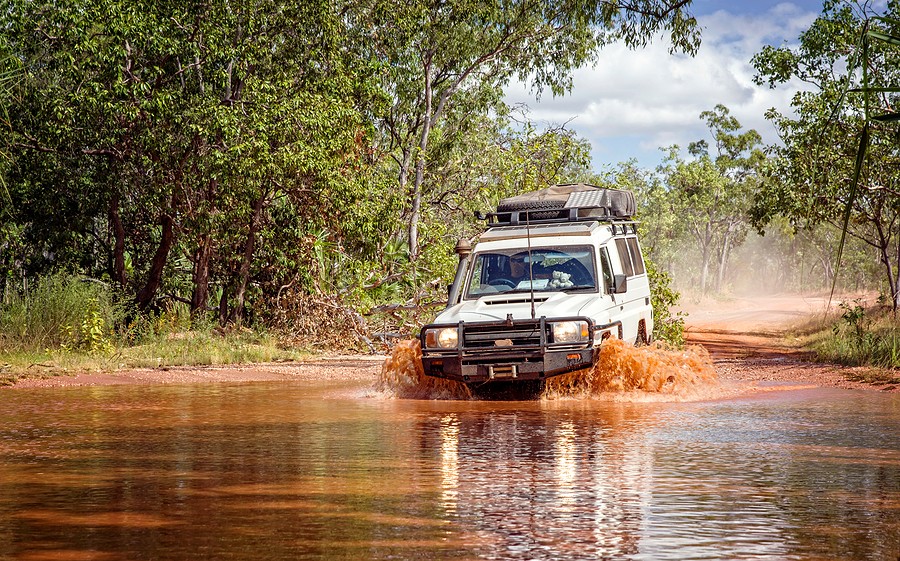
How to tell if you're dealing with a flood-damaged car?
Sometimes you might have been in a rainy event and realize it's a normal situation where you shouldn't worry about your car. However, this might have an impact on the vehicle’s different components and might impact the value of your vehicle.
In other situations, you might need to know any symptoms that could tell you whether this vehicle was flood-damaged before, especially if you're trying to buy a new car. When you search for a new vehicle in the used car market, you might run through many scams that could mess up your investment. Therefore, it is critical for you as a car shopper to understand any symptoms that could help you tell if a vehicle was involved in flood damage or not.
The good news is that automotive experts were able to put together a list of common symptoms of a flood-damaged car, including:
1. Strange smells
It would be best to keep an eye on whether the vehicle smells weird. The biggest common symptom of any flood-damaged car is the mold-like smell. If that's the case, you should think twice before buying this car because it's most likely been flooded.
Sometimes you'll notice that seller needs to use more orders to cover something. For example, if you look inside the car, you'll notice a lot of artificial smells and odors put inside it to make it smell nice. This should not be a good thing because it could be a red flag that the solar is trying to cover.
2. Weird interior color
In some situations, if a vehicle gets flooded, the seller might try to cover the situation by buying new interior parts. One of the things that you can try is to watch for the different colors and see if anything looks weird.
In other words, if you looked at a certain portion of the vehicle and realized that the clothing or the cover of the interior looks a little bit different or there is a color mismatch, this could be a clear indication that the vehicle was through something that could be a flood or anything else.
3. Rust throughout the vehicle
The other thing to watch for is any rust building up in the interior of the vehicle’s exterior. Typically, vehicles might get rusted over time of use, but if the rust was intensive and all over the vehicle, it could be related to flooding damage.
If you're trying to buy a car, you should walk away from any vehicle, many of us, because rust is one of the worst enemies that could impact any vehicle. Treating most rust can be a bit time-consuming, and the investment you put in a completely rusted vehicle is not worth it.
4. Wet components
If someone tries to sell a flood-damaged car, he will do his best to cover the problem. One of the things that you might notice is that these vehicles will have moisture in some areas that are not typically wet.
By monitoring for any moisture throughout the vehicle, you should be able to pinpoint any flood-damaged vehicle that's been in flood very soon. However, if the vehicle was set for a long time, it might be challenging to find wet areas, especially if the moisture evaporated.
5. Dirt in inaccessible areas
The other thing to look for is any potential mud or dirt throughout the vehicle in areas that are not typically exposed to dirt. These areas potentially got involved in a flood where the flood had a lot of dirt and sediments, and then at the end of the day, this sediment settled in these areas so the driver couldn't reach them and clean them up.
If that's the case, consider thinking twice before purchasing this vehicle because all these signs could indicate a flood-damaged vehicle which can be a huge bummer to put their investment in.
6. Very strange smoke
There are some situations where you might notice the vehicle making weird smoke. This smoke could be linked to many things that could be related to a mechanical problem in the vehicle, but also it could be linked to an issue related to flood damage.
Whether this smoke is related to an internal problem or flood damage, you shouldn't purchase this car because it will hassle you, and it's not worth your investment.
7. Loud noises
Finally, the flood-damaged vehicle will need to be in better shape. It will make some weird noises, especially if you try to start the engine or engage other components that are not necessarily like the AC or other components.
Even if the vehicle started making loud noises not because of a flood problem, you shouldn't purchase this car because it will give you a hard time moving forward, and that's not going to be worth your effort to try to get this vehicle to work.
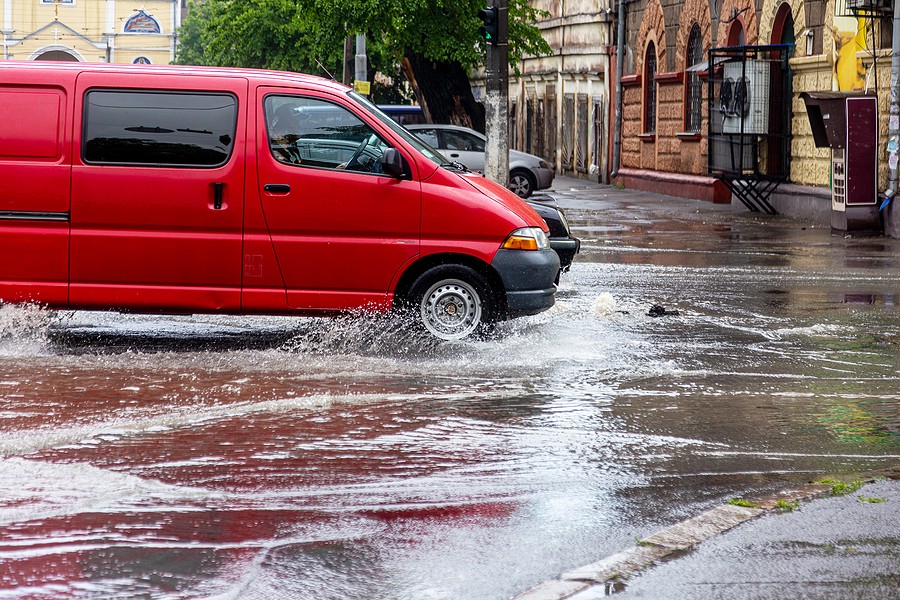
What options do you have when dealing with a flood-damaged car?
If you confirm that you're dealing with a flood-damaged car, you must evaluate your options and see what you can do about them. Typically, when you have a flood-damaged car, you have one of the following options to pursue:
1. Fix the vehicle
Suppose you confirm that your flood-damaged car is repairable. In that case, you can choose a potential mechanic willing to fix the vehicle considering the flood-damage issues. This might require some research about the potential repair options that are costly.
2. Part out the car
In some situations, you might realize that the vehicle is gone, and the only situation for you is to part it out and make some money out of the components. There are many websites you can try posting these parts and making some money out of the vehicle.
3. Sell the vehicle as is
Finally, you can go ahead and sell your vehicle as is. One might be surprised that anyone would buy this car. However, companies like Cash Cars Buyer guarantee to buy any flood-damaged car regardless of its type or condition.
You can call our team at 7737914363.
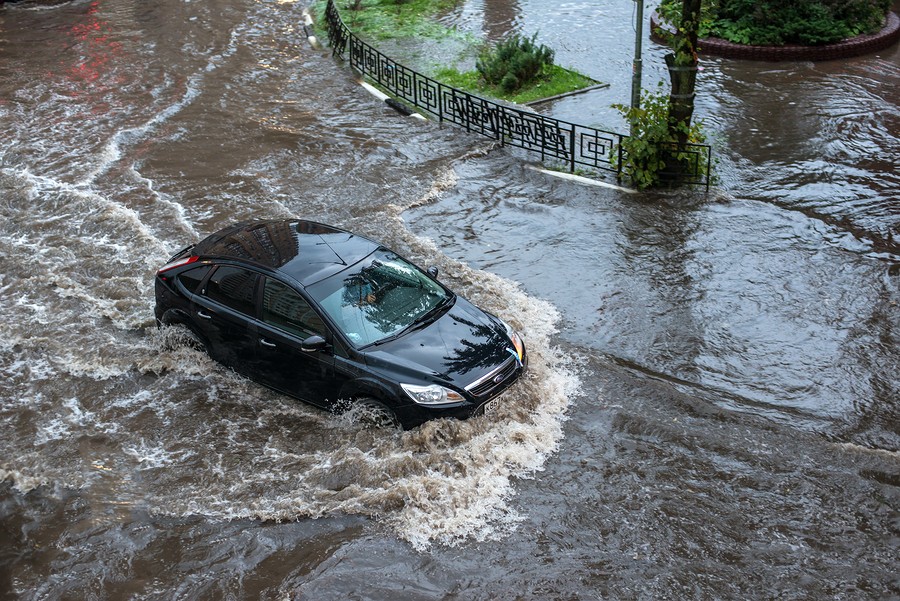
Can a car history show flood damage problems?
There are many ways we can confirm whether a vehicle was involved in flood damage before. However, they might only cover some things about the car, but there is a good start. For example, you can look up the vehicle by VIN through the National Insurance Crime Bureau system.
Through this system, you should be able to find any insurance claims filed about this vehicle and determine whether any of these claims have to do with flood damage. You can also get more details about the vehicle’s overall condition, which is a good thing to do when investing in a new car.
Once you confirm that the vehicle was involved in flood damage, you should think of another car rather than wasting your time and money on something that's not worth it.
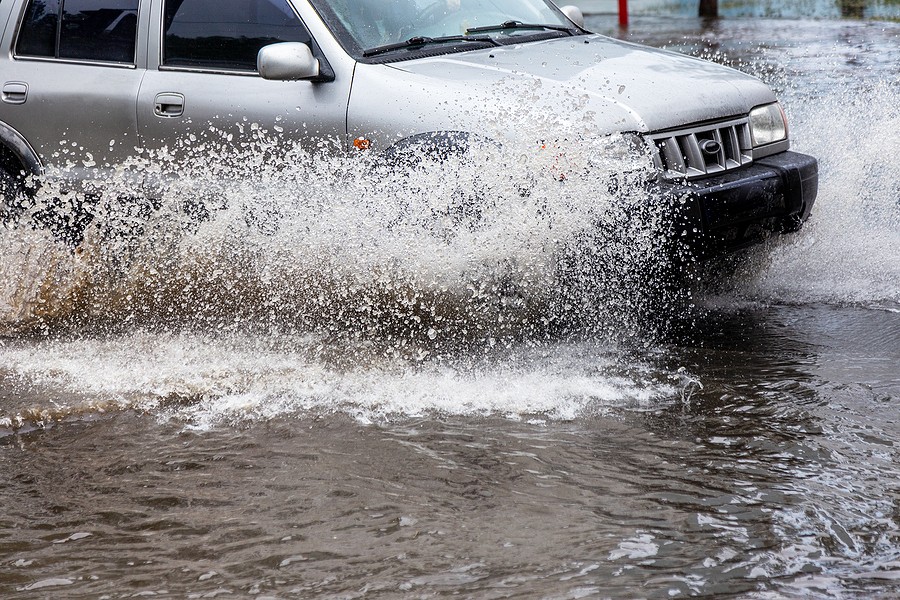
Final thoughts
Are flood-damaged cars repairable when your vehicle gets soaked in water through a flood? The short answer to the question is that it depends heavily on your situation. The previous article provided details about evaluating the situation and determining whether you should fix your car.
If you feel that your car is completely damaged because of a flood and are concerned that no one will buy it, we highly encourage you to call Cash Cars Buyer at 7737914363. We're happy to buy your car and remove it within one to three days!

